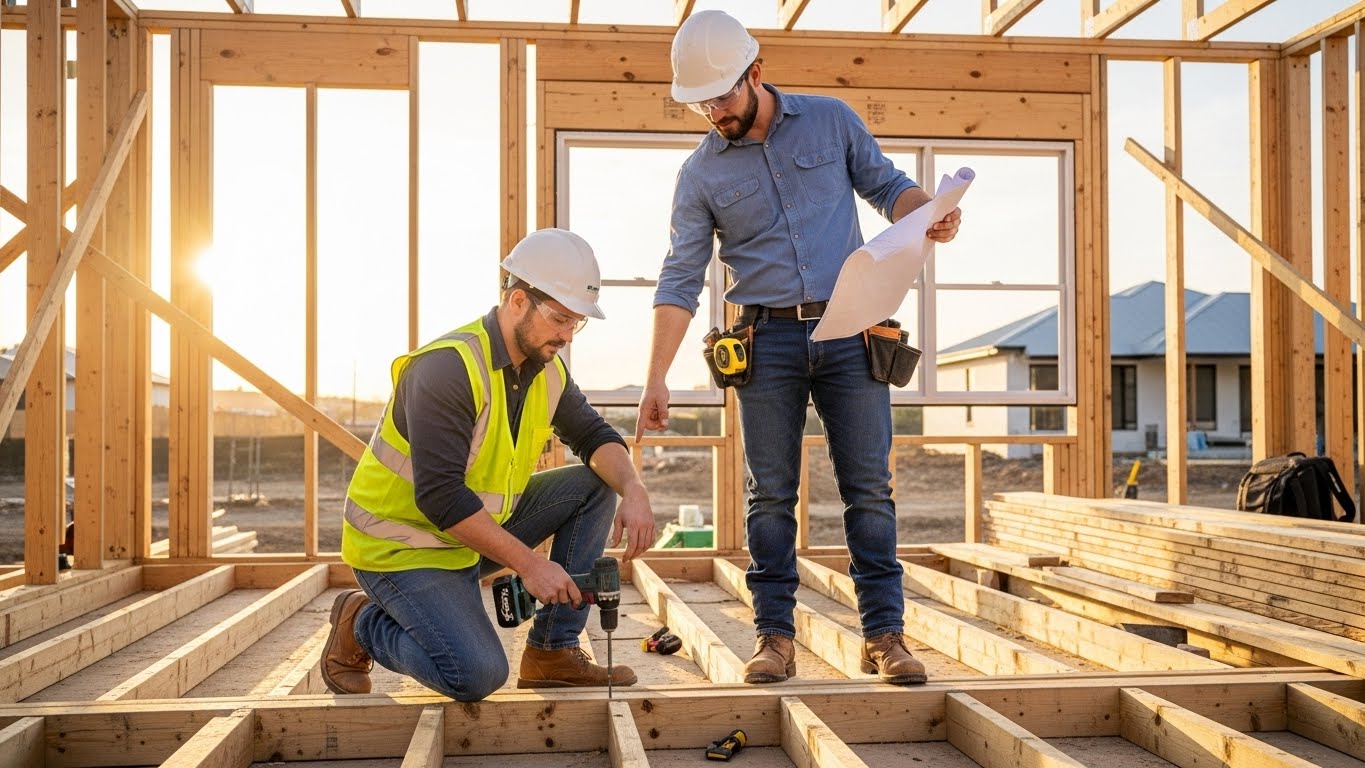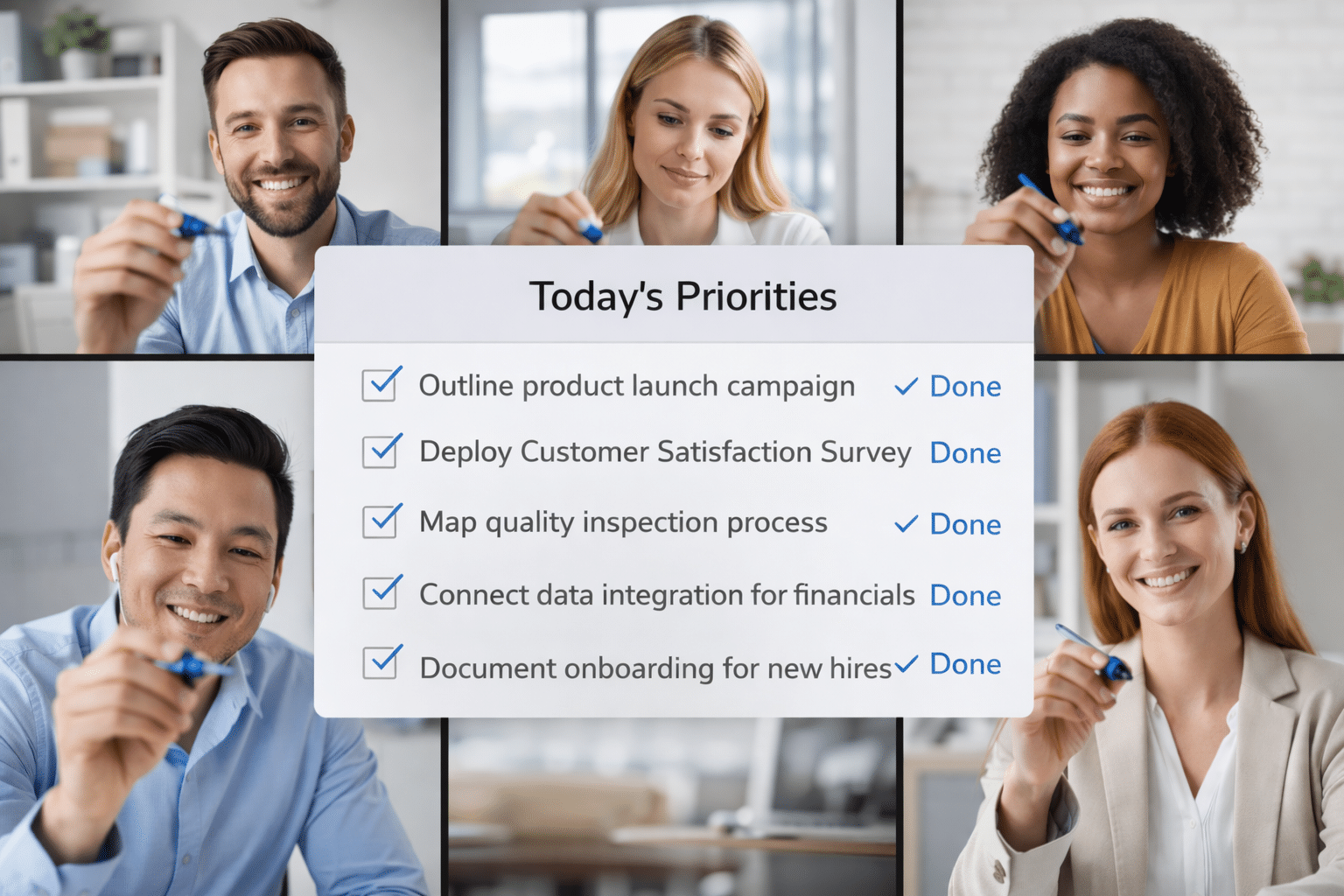Stop the Blame Game: Creating Accountability That Works in Construction Firms
The Real Cost of the Blame Game in Construction
When a project runs over budget or behind schedule, the first question that often echoes through the office is: “Whose fault is it?”
But the truth is blame hides the problem.
In construction firms, where every project depends on coordination between estimators, project managers, field crews, and suppliers, finger-pointing destroys trust and slows progress. Instead of identifying the root cause, teams waste energy defending themselves.
According to McKinsey & Company, large construction projects typically take 20% longer to finish and cost up to 80% more than planned. While external factors like material costs and weather play a role, internal misalignment and lack of accountability often amplify those problems.
To move from reactive chaos to consistent performance, construction firms must replace the blame game with a culture of accountability that actually works.
1. Redefine Accountability as Ownership, Not Fault
In too many firms, “accountability” is code for “who’s in trouble.” That mindset kills initiative. Real accountability is about ownership, not punishment.
When people take ownership, they don’t wait to be told what went wrong—they surface issues early, act fast, and learn from them. Accountability becomes a tool for progress instead of a weapon for blame.
As Harvard Business Review points out, the right kind of accountability focuses on clear expectations and follow-through, not fear.
Start by setting clear, measurable goals that define success for every role:
-
Estimators are responsible for bid accuracy and awarded-to-bid ratios.
-
Project managers own change order turnaround and cost variance.
-
Superintendents track labor productivity and rework rates.
When accountability is visible and tied to metrics, it becomes about results, not reputation.
2. Build Shared Visibility — So Everyone Sees the Same Truth
Most blame spirals start because people are working from different realities. Procurement has one set of numbers, field teams have another, and leadership sees an outdated report two weeks later.
The fix? Shared visibility.
When everyone—from project managers to superintendents—can see real-time progress toward shared goals, conversations shift from “Who dropped the ball?” to “What needs to happen next?”
According to Deloitte’s Construction Industry Outlook, digital tools that centralize data and communication are now key to improving performance and profitability across construction firms.
That’s where platforms like Align come in — connecting your team’s priorities, KPIs, and updates in one place. With transparent dashboards and structured check-ins, teams stop guessing and start collaborating.
3. Make Accountability a Rhythm, Not a Reaction
Accountability doesn’t happen in end-of-quarter reviews — it happens in daily and weekly rhythms.
In construction firms that execute well, accountability looks like:
-
Daily standups where office and field sync on progress and blockers.
-
Weekly huddles that review leading indicators like cost variance or productivity rates.
-
Quarterly goal reviews that connect field results back to strategic objectives.
This rhythm ensures issues surface early, lessons are shared quickly, and momentum never stalls.
When paired with a system like Align, these meetings become more than conversations — they become checkpoints for measurable progress.
4. Replace Reaction with Learning
A strong accountability culture doesn’t just catch mistakes — it learns from them.
When something goes wrong, instead of asking “Who’s responsible?”, ask:
-
What process broke down?
-
What assumptions were wrong?
-
How do we prevent it next time?
This shift transforms accountability from reactive blame to proactive improvement. Accountability in construction firms grows when leaders foster transparency, recognize effort, and turn errors into learning opportunities.
5. Use Technology to Reinforce Accountability
Accountability falls apart when information lives in too many places—emails, spreadsheets, text threads, or site notes.
With Align, teams can:
-
Document decisions (like change orders or scope shifts) in one shared system.
-
Assign ownership with due dates and progress tracking.
-
View real-time dashboards showing which priorities are on track and which need attention.
This structure makes accountability easy to manage and hard to ignore. Instead of chasing updates, leaders can focus on removing roadblocks and supporting progress.
The Takeaway: Accountability Is the Foundation of Sustainable Growth
Blame slows progress. Accountability accelerates it.
When construction firms stop pointing fingers and start connecting goals, data, and people, they move from constant firefighting to consistent execution.
With the right systems and rhythms in place, and the visibility to keep everyone aligned, accountability becomes a competitive advantage.
Because in the end, the most successful construction firms aren’t just the ones that build great projects — they’re the ones that build great systems of trust, clarity, and ownership.





